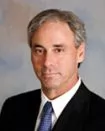In Drawbridge Special Opportunities Fund LP v. Barnet (In re Barnet), Case No. 13-612, 2013 WL 6482499 (2d Cir. Dec. 11, 2013), the United States Court of Appeals for the Second Circuit held that in order for a foreign representative to achieve "recognition" of a foreign debtor's insolvency proceedings in another country as "foreign main proceedings" under chapter 15 of the United States Bankruptcy Code—11 U.S.C. § 101, et seq. (the "Bankruptcy Code")—the foreign debtor must satisfy the "eligibility" requirements that apply to debtors in plenary U.S.–based bankruptcy proceedings. The Second Circuit's decision is significant in that it will likely limit the ability of bankruptcy courts in the United States to assist foreign debtors.
Katherine Barnet and William Fletcher (the "Foreign Representatives"), as foreign representatives of an entity undergoing liquidation in Australia (the "Foreign Debtor"), commenced a chapter 15 proceeding in the United States Bankruptcy Court for the Southern District of New York (the "Bankruptcy Court") on August 13, 2012. The Bankruptcy Court on September 6, 2012, entered an order granting "recognition" (the "Recognition Order") to the Australian liquidation proceedings as "foreign main proceedings" over the objection of Drawbridge Special Opportunities Fund LP ("Drawbridge"). Drawbridge filed a notice of appeal of the Recognition Order. The Foreign Representatives and Drawbridge jointly requested the issues raised by Drawbridge's appeal of the Recognition Order to be certified for direct appeal to the Second Circuit. The request was granted by the Bankruptcy Court, and the Second Circuit permitted the direct appeal. While the appeal was pending, the Foreign Representatives filed a motion in the Bankruptcy Court seeking discovery from Drawbridge relating to a lawsuit pending in Australia. Discovery was permitted.
The Second Circuit's opinion begins with a lengthy and detailed analysis of whether Drawbridge had standing to appeal the Recognition Order. Finding that standing was present, the Second Circuit turned its focus to the question of whether the eligibility requirements for debtors in U.S.–based bankruptcy proceedings, detailed in 11 U.S.C. § 109, applied to foreign debtors who seek relief under chapter 15 of the Bankruptcy Code. Section 109 provides that "only a person that resides or has a domicile, a place of business, or property in the United States, or a municipality, may be a debtor under this title."
Utilizing a textualist approach, the Second Circuit noted that 11 U.S.C. § 103(a) specifically provides that chapter 1 of the Bankruptcy Code applies to proceedings under chapter 15. Accordingly, the court found that the eligibility requirements set out in 11 U.S.C. § 109 apply in chapter 15 proceedings. This was not even a close question in the view of the Second Circuit: "The straightforward nature of our statutory interpretation bears emphasis." Even so, the Second Circuit considered contextual arguments and contentions regarding congressional intent that were pressed by the Foreign Representatives, but rejected them. As a result, the Second Circuit concluded that in order to be eligible for relief under chapter 15, a foreign debtor must have "a domicile, a place of business, or property in the United States."
Because the Foreign Debtor did not satisfy the eligibility requirements of 11 U.S.C. § 109, the Second Circuit vacated the Recognition Order. The Foreign Representatives will not be able to use the chapter 15 process to obtain the discovery they had sought from Drawbridge. The Second Circuit noted that although chapter 15 was not available to the Foreign Representatives, 28 U.S.C. § 1782(a) permits federal courts to assist with discovery relating to foreign proceedings, and that the statute is not subject to limitations like those that are present in 11 U.S.C. § 109. Although chapter 15 will not enable the Foreign Representatives to achieve their goals, other federal statutes may be well-suited to the task.
The Second Circuit's opinion circumscribes the use of chapter 15, particularly where a foreign debtor's only connection to the United States is a desire to take discovery in the United States. Although relief in aid of discovery may be available through other statutes, chapter 15 provides a flexible and accommodating structure in which Foreign Representatives may assist a foreign insolvency proceeding. Whether the Second Circuit's opinion will have a broader impact than matters involving discovery remains to be seen.
If you have any questions about this Alert or would like more information, please contact William C. Heuer; Rudolph J. Di Massa, Jr.; Rossanne Ciambrone; Ron Oliner; Gerard S. Catalanello; James J. Vincequerra; any member of our Business Reorganization and Financial Restructuring Practice Group; or the attorney in the firm with whom you are regularly in contact.
This article is for general information and does not include full legal analysis of the matters presented. It should not be construed or relied upon as legal advice or legal opinion on any specific facts or circumstances. The description of the results of any specific case or transaction contained herein does not mean or suggest that similar results can or could be obtained in any other matter. Each legal matter should be considered to be unique and subject to varying results. The invitation to contact the authors or attorneys in our firm is not a solicitation to provide professional services and should not be construed as a statement as to any availability to perform legal services in any jurisdiction in which such attorney is not permitted to practice.
Duane Morris LLP, a full-service law firm with more than 700 attorneys in 24 offices in the United States and internationally, offers innovative solutions to the legal and business challenges presented by today's evolving global markets. Duane Morris LLP, a full-service law firm with more than 700 attorneys in 24 offices in the United States and internationally, offers innovative solutions to the legal and business challenges presented by today's evolving global markets. The Duane Morris Institute provides training workshops for HR professionals, in-house counsel, benefits administrators and senior managers.



